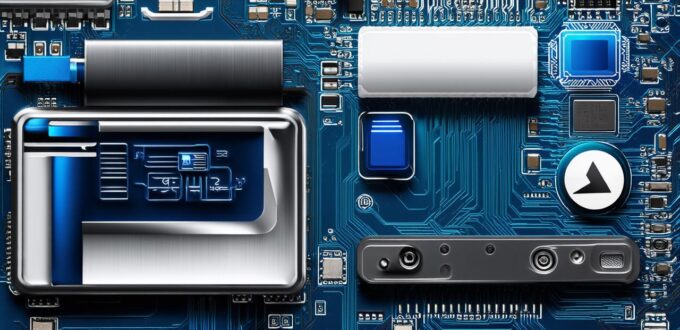What Distinguishes Application Software from System Software: A Comprehensive Guide for Software Developers
As software development continues to evolve, it becomes increasingly important for developers to have a solid understanding of the different types of software that exist. While there are many types of software, two of the most common are application software and system software. In this comprehensive guide, we will explore what distinguishes these two types of software and their respective roles in computer systems.
Application Software: An Overview
Application software is a type of software that is designed to perform specific tasks or functions for the user. It is typically installed on top of an existing operating system and runs independently of other programs. Application software can be anything from word processors and spreadsheets to web browsers and video editors.
One of the key characteristics of application software is its ability to interact directly with the user. This means that users can open and use the software without needing to have extensive technical knowledge or experience. Additionally, application software is often designed to be highly customizable, allowing users to configure it to meet their specific needs.

System Software: An Overview
System software, on the other hand, is a type of software that is responsible for managing and controlling the hardware and other software components of a computer system. It provides the infrastructure that allows application software to run efficiently and securely. System software includes operating systems, device drivers, and firmware.
Unlike application software, which is designed to perform specific tasks, system software is responsible for maintaining the overall health and stability of the computer system. It is typically more complex than application software and requires a deeper understanding of computer hardware and software principles.
Examples of Application Software vs System Software
To help illustrate the differences between application software and system software, let’s look at some examples:
- Microsoft Word: This is an example of application software that is designed to perform a specific task (writing documents). It runs on top of an existing operating system and can be used by anyone with basic computer skills.
- Windows Operating System: This is an example of system software that provides the infrastructure for running applications. It manages hardware resources, such as CPU time, memory, and storage space, and coordinates the interactions between different programs.
- Adobe Photoshop: This is another example of application software that is designed to perform specific tasks (editing images). It runs on top of an existing operating system and can be highly customized to meet the user’s needs.
Key Differences Between Application Software and System Software
Now that we have looked at some examples, let’s explore the key differences between application software and system software:
- Functionality: Application software is designed to perform specific tasks or functions for the user, while system software provides the infrastructure for running applications.
- Interaction with the User: Application software interacts directly with the user, allowing them to open and use it without needing extensive technical knowledge. System software, on the other hand, is typically more complex and requires a deeper understanding of computer hardware and software principles.
- Customization: Application software is often highly customizable, allowing users to configure it to meet their specific needs. System software, on the other hand, is typically less customizable and is designed to work seamlessly with other programs.
- Security: System software is responsible for maintaining the security of the computer system, while application software is not. System software includes features such as firewalls, anti-virus software, and user authentication mechanisms.
- Compatibility: Application software is typically designed to work only on specific operating systems or hardware platforms. System software, on the other hand, is designed to be compatible with a wide range of hardware and software configurations.
- Dependency: System software is often dependent on other system components, while application software is generally standalone. This means that if one component of the system software fails, it can cause problems with the entire system.
- Maintenance: Application software is typically easier to maintain than system software. This is because it does not require as much knowledge of computer hardware and software principles, and it is less likely to be affected by system-level issues.
Conclusion
In conclusion, application software and system software are two different types of software that play important roles in computer systems.
